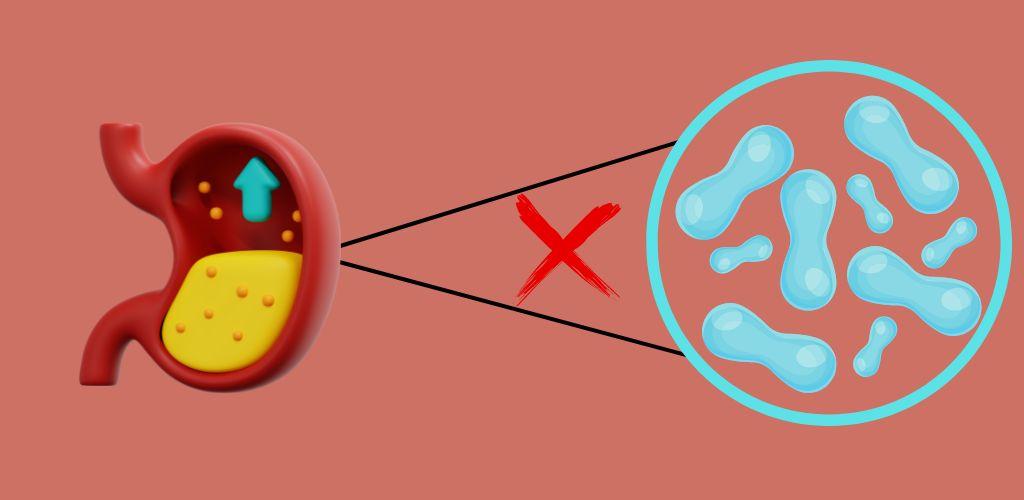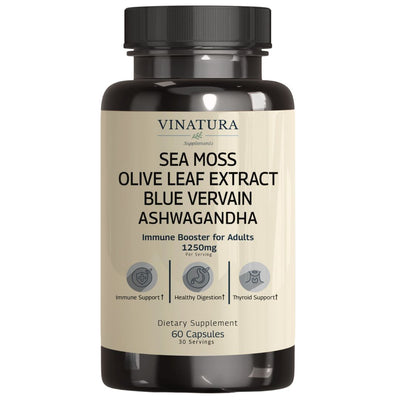
Do Probiotics Cause Acid Reflux?
Probiotics, also known as beneficial bacteria, have become an integral part of nutritional supplements to improve gut health and enhance the immune system. However, a common question is whether probiotics can cause acid reflux. While some individuals may experience mild digestive symptoms when first starting probiotics, such as bloating or abdominal discomfort, no scientific evidence suggests that probiotics cause acid reflux.
Before exploring further, please read the disclaimer located at the end of this webpage.
Key Takeaways
- Probiotics can help balance the gut microbiota, thereby improving overall digestive health. They can reduce digestive symptoms, including acid reflux, by maintaining a balance of beneficial bacteria in the gut.
- Studies show that probiotics typically do not cause acid reflux. On the contrary, they may help improve digestive health and reduce symptoms associated with acid reflux in some individuals.
- Acid reflux occurs when stomach acid refluxes into the esophagus, causing a sensation of burning and discomfort. And heartburn is the most common symptom of acid reflux. It causes patients to feel a burning sensation in the chest or abdomen.
Do Probiotics Cause Acid Reflux?

Probiotics are not a direct cause of acid reflux. This is because:
- Probiotics are beneficial bacteria that help balance the gut microbiota. They do not produce or promote stomach acid production; instead, they improve digestive function and balance harmful and beneficial bacteria in the gut.
- Acid reflux often occurs when increased pressure in the stomach pushes stomach acid into the esophagus. Probiotics do not increase this pressure; they may help regulate the digestive system, reducing issues such as bloating and abdominal discomfort.
- Some causes of acid reflux may be related to an imbalance of bacteria in the stomach and intestines. Probiotics help restore this balance, supporting digestive function and reducing the risk of digestive issues, including acid reflux.
- Numerous clinical studies have shown that using probiotics does not increase the risk of acid reflux. Some studies have even suggested that probiotics may help reduce symptoms of acid reflux and other digestive issues.[1]
Benefits And Side Effects Of Probiotics?
Benefits Of Probiotics
- Balancing gut bacteria: Probiotics help balance beneficial and harmful bacteria in the gut, supporting digestion and preventing digestive disorders such as diarrhea and constipation.
- Reducing symptoms of inflammatory bowel diseases: Many studies have shown that probiotics may help reduce symptoms of inflammatory bowel diseases such as Crohn's disease and ulcerative colitis.
- Boosting the immune system: Probiotics help stimulate the production of antibodies and immune cells, enhancing the body's ability to fight infections and diseases.
- Reducing symptoms of skin conditions: Probiotics may help reduce symptoms of skin conditions such as eczema, acne, and allergic dermatitis.
- Supporting weight loss and belly fat reduction: Some probiotics, such as Lactobacillus gasseri, have effectively reduced belly fat and support weight management.
Side Effects Of Probiotics
- Bloating and abdominal discomfort: These are common side effects when using probiotics due to changes in the balance of gut bacteria.
- Mild allergies: Some individuals may experience mild allergies such as itching, rash, or difficulty breathing. If you experience these symptoms, stop using probiotics and consult a doctor immediately.
- Increased risk of yeast infections: For some individuals, especially those with a history of yeast infections, probiotics may increase the risk of this infection.
- Drug interactions: Probiotics may interact with some medications, especially immunosuppressants or antibiotics. Consult your doctor before starting probiotics if you are taking medication for a medical condition.
How To Take Probiotics For Acid Reflux, Gerd And Heartburn
Probiotics offer numerous health benefits, particularly for digestive and immune health. Additionally, probiotics help treat acid reflux, GERD, and heartburn.
- Probiotics help increase the number of beneficial microorganisms in the gut, balancing the microbiota and preventing the overgrowth of harmful bacteria. This can improve gut health and reduce GERD symptoms.
- Probiotics enhance the presence of beneficial microorganisms in the gut, creating a balanced and antibacterial environment for the microbiota. This can also help improve digestive health and reduce heartburn symptoms.
- Probiotics may reduce inflammation and irritation in the digestive tract, reducing damage to the gastric and esophageal mucosa caused by acid, thereby reducing symptoms such as bloating and chest pain.
- Some types of probiotics may support the enhancement of the body's immune system, helping to reduce inflammation and irritation in the digestive tract and reducing the risk of ulcers and damage to the gastric and esophageal mucosa.
- Some probiotics may produce digestive enzymes, helping to improve the digestion and absorption of nutrients, reducing symptoms such as bloating and indigestion.
How To Use Probiotics for Acid Reflux, Gerd, And Heartburn
- Selecting the appropriate probiotic: Various types of probiotics are available on the market. You should choose products containing beneficial bacteria such as Lactobacillus and Bifidobacterium for GERD and heartburn. Consult a doctor or healthcare professional to choose the right probiotic for your health condition.
- Timing of consumption: It may be best to take probiotics before or after meals. Taking probiotics before meals can help balance the gut microbiota before digesting food, and taking them after meals can create an ideal environment for beneficial bacteria to thrive.
- Dosage compliance: Adhere to the recommended dosage on the product packaging or as directed by a doctor. Typically, you need to take probiotics daily for the best results.
Best Probiotic For Acid Reflux

Determining the best probiotic for acid reflux may depend on various factors, including individual health conditions and personal reactions to different strains of bacteria. However, here are some probiotics that have been studied and considered the best for acid reflux:
- Lactobacillus acidophilus: Known for its ability to balance the gut microbiota and reduce inflammation in the stomach and esophagus.
- Bifidobacterium: Also a common beneficial bacteria known for improving digestive health and reducing inflammation in the stomach and intestines.
- Lactobacillus rhamnosus GG (LGG): Widely studied and shown to effectively reduce symptoms of GERD and other digestive issues.
- Lactobacillus reuteri: Also studied for its effectiveness in reducing harmful bacteria and improving digestive health.
- Saccharomyces boulardii: A type of yeast probiotic commonly used. It may help improve the gut microbiota and reduce harmful bacteria.
Other Ways To Reduce Acid Reflux?

- Drink water and caffeine-free beverages: Drinking or caffeine-free beverages such as plain water, barley water, or caffeine-free tea can help reduce acid reflux symptoms.
- Avoid smoking: Smoking can increase the risk of acid reflux by reducing the body's ability to clear foreign objects.
- Limit acid reflux-inducing medications: Some medications, such as aspirin and ibuprofen, may cause acid reflux. Consult with a doctor about changing medications if necessary.
- Lifestyle and dietary changes: Eating smaller and more frequent meals instead of large meals can reduce pressure on the stomach. Limiting fatty foods and heavy meals can also reduce the risk of acid reflux.
- Regular check-ups: Treating acid reflux often requires close monitoring from a doctor or healthcare professional. It includes adjusting medication dosages or making changes in lifestyle and diet.
In some cases, probiotics may help improve symptoms of acid reflux by balancing the gut microbiota and reducing inflammation. However, selecting the appropriate probiotic strain is crucial. It should be consulted with a doctor to ensure safety and effectiveness in the treatment process.
Conclusion
Although the evidence on probiotics for acid reflux is mixed, these beneficial bacteria offer a range of potential health benefits. Incorporating probiotics into a healthy lifestyle may support gut health and contribute to overall well-being. However, it's essential to consult with a healthcare professional before making significant changes to your diet or supplement regimen.
References
- [[1] Cheng, J. and Ouwehand, A.C. (2020). Gastroesophageal Reflux Disease and Probiotics: A Systematic Review. Nutrients, [online] 12(1), pp.132–132. doi:https://doi.org/10.3390/nu12010132.
Author

Product Disclaimer
Including an ingredient or study does not evaluate, endorse, or recommend any Vinatura product or any third-party product. Some ingredients discussed may not be used in any Vinatura product.
The content of the articles has not been evaluated by the Food and Drug Administration (FDA) and is not intended to promote or endorse any specific product. Any products sold on this website are not intended to diagnose, treat, cure, or prevent any disease.
Opinions and Endorsements
Any claims, statements, or opinions expressed in the articles are those of the author(s) and do not necessarily reflect the views or opinions of the manufacturers of the dietary supplement products. The products sold on this website are separate from the content of the articles and are not directly endorsed or associated with the information presented here.
Liability Disclaimer
The author(s) of the articles, website, and manufacturers of the dietary supplement products do not assume any liability for any potential consequences arising from the use of the information provided in the articles. Ingredient effects, dosages, and safety vary by individual, formulation, and context; some ingredients interact with medications or may be unsuitable during pregnancy or lactation. It is recommended that individuals consult with a qualified healthcare professional before making any dietary or lifestyle changes, including the use of dietary supplements.
Product Usage
Please refer to the product labels and packaging for specific usage instructions and guidelines for the dietary supplement products sold on this website.
Customer Support
For any concerns or questions regarding the dietary supplement products, please contact our customer support team, who will be more than happy to assist you.





Leave a Comment
Be the first to comment.
What do you think?